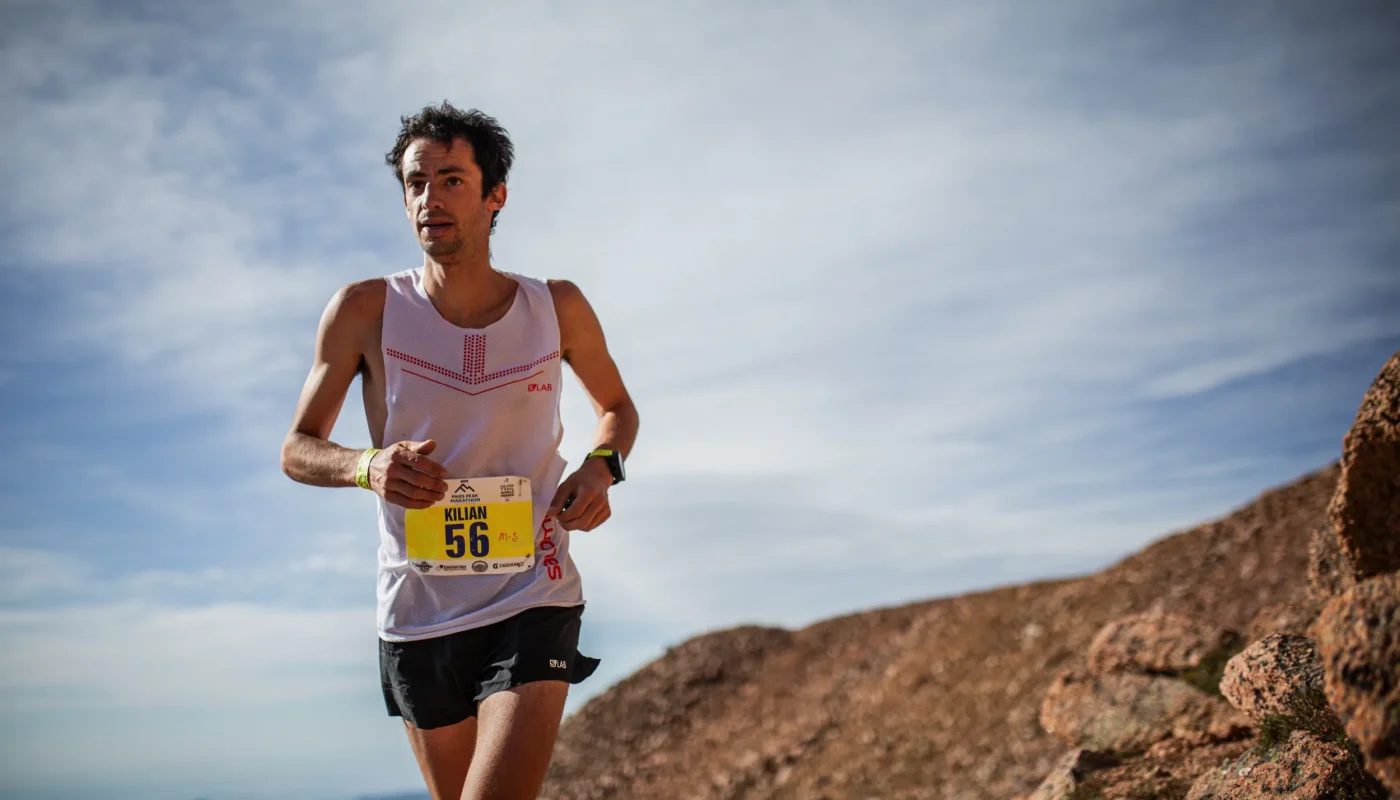Kilian Jornet: fueled with olive oil

Indice
Performance and Nutritional Strategy in Kilian Jornet’s States of Elevation Project
The States of Elevation project, executed by elite ultra-athlete Kilian Jornet, represents a significant case study in sustained human endurance performance. Completed over a 31-day period, the expedition involved the ascent of the majority of 4,267 m (14,000-foot) peaks in the American West, interspersed and connected by extensive cycling transfers. The total physical output accumulated was 5,154 kilometers over approximately 490 hours of active movement time.
Nutritional Strategy: High-Density Calorie Intake via Aceite de Oliva
A critical factor in the project’s success was the meticulously managed energy balance required to support a staggering estimated daily caloric expenditure of approximately 9,000 calories. Jornet’s fueling protocol deviated from typical ultra-endurance racing strategies by prioritizing whole foods over continuous consumption of processed sports nutrition products.
The novel element attracting significant attention was the incorporation of aceite de oliva (olive oil) and coconut oil into his hydration regimen. This practice was a direct and pragmatic solution to achieving the required energy density without overburdening the gastrointestinal system with solids. Jornet noted that these lipid sources offer inherently higher caloric density, making them an efficient means to supplement daily intake.
The strategic role of the aceite de oliva was twofold:
- Caloric Density Augmentation: Adding oil to water bottles facilitated the rapid intake of high-energy macronutrients to offset the immense daily deficit.
- Gastrointestinal Management: By consuming fewer highly processed energy gels (limiting intake to approximately five per day for critical energy boosts) and spacing out whole-food meals, the strategy aimed to maintain low systemic inflammation and provide the digestive system with necessary recovery periods.
Logistical and Terrain Analysis
The total cycling distance of the project reached approximately 4,200 kilometers, surpassing the length of the men’s Tour de France. This phase was executed at an average velocity of 22.5 kph across a demanding blend of paved roads and unpaved gravel sections, with Jornet estimating that 50% of the route was conducted on gravel. The terrain offered significant variability, ranging from the high plateaus of Colorado to the alpine and desert environments of California, providing a continuous physiological and technical challenge.
Unanticipated environmental variables, particularly significant rain and snowstorms in traditionally drier September conditions across Colorado and California, introduced unforeseen load and logistical complexity to the kinetic phases of the project.
Conclusion and Future Implications
The States of Elevation project serves as a comprehensive demonstration of peak human endurance, with the strategic application of aceite de oliva as a high-density, real-food calorie supplement being a notable innovation in ultra-endurance nutritional science. Jornet’s successful completion of the endeavor, coupled with his positive experience on varied terrain, suggests a growing trend toward incorporating cycling and complex mixed-terrain travel into future long-distance, self-supported exploratory efforts.
Important Note: oliveoilextra.com promotes the consumption of extra virgin olive oil for its culinary qualities and health benefits. However, it should not replace any current medication or treatment without the guidance of a healthcare professional.
